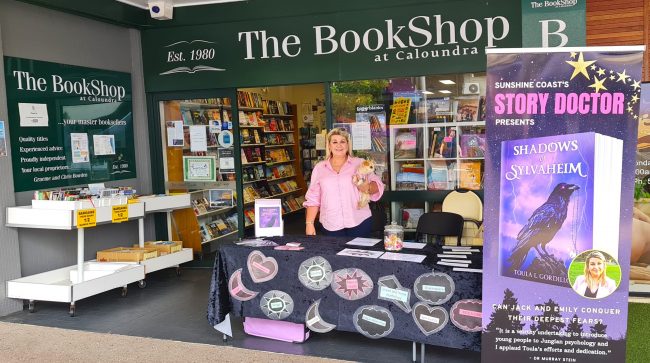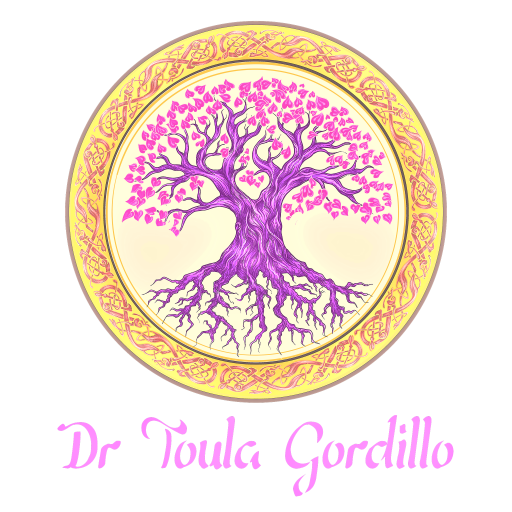‘Know Thyself’ Through Individuation
Hello and welcome to this month’s newsletter. So, what do e-books, audiobooks and the process of becoming an individual all have in common? The answer is individuation. The process of becoming who we truly are.
In Jungian psychology, individuation is considered an important life goal. It occurs differently for each person and generally takes place in the second half of life. Individuation is the process of realising one’s true personality, including discovering our life purpose or calling. Our vocation. It also means overcoming our personal challenges. For me recently, that’s been technology.
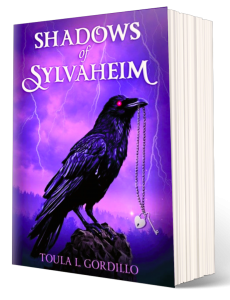
Over the past few months, my Shadows of Sylvaheim written text (and ebook) has evolved into a recording and editing exercise with a very patient sound engineer at Spark 1 Studios, Maleny. In the process of converting it into an audiobook, I’ve had to narrate the story, organise and co-ordinate numerous people — including paid professional actors — to record live voices. I’ve downloaded audiofiles from dropbox so I could listen for imperfections, emailed and texted these changes, learned about different file formats and much more. It’s been a process of “becoming”…. And a very steep learning curve!

Using examples from Jung’s life, as well as my own, I presented on a similar individuation journey, not about technology this time, but rather about my own life journey and the process of healing. I described my personal reflection methods, and the product of my vocation—the creation of Story Image Therapy (SIT®) based on Jung’s ideas and knowledge. This is also the subject of my second book, The Rise of Jung in Me.
I presented on the topic of Individuation at The Jung Society in Brisbane on Thursday, April 6th 2023,
7.30 – 9.30pm,
St Mary’s Anglican Church Hall,
455 Main St, Kangaroo Point, Q 4169
Members & Concession $10; Non-members $15
Everyone was welcome and my presentation was well received.
If you’re interested in knowing more about what’s on offer at the Queensland Jung Society, the link to their latest newsletter is: https://jungqld.com/wp-content/uploads/2023/02/Newsletter-Feb-Jun-2023-A5-online.pdf
Cheers, Toula
For more information, you are welcome to see my professional Facebook page: https://www.facebook.com/DrToula
Changing Negative Patterns
Hello and welcome to the final newsletter for this year. Someone recently asked how we change negative patterns to bring more positivity and abundance into our lives. This is an important question and I think very fitting for the holiday season.
Jung says the first step to changing any behaviour is to become conscious of it. Understanding our unmet needs through recognising our feelings around a subject is vitally important. We may have a habit of overanalysing events and situations in a black and white manner, rather than an intuitive (flexible) way. Aligning ourselves with what we think is real, rather than allowing ourselves to feel what is right, can lead to problems. To truly know ourselves, thinking AND feeling need to work in harmony, just as we must acknowledge the ‘light’ and ‘dark’ within us all. I presented on this in Maleny recently.
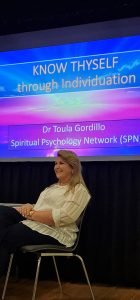
Be completely honest and take time for reflection. Ask yourself, for example, “How do I really feel (the sensation rather than the thoughts) about money?” “What is my primary need not being met and how does money tie in with this?” Write, think, reflect and FEEL. This is Shadow work, and it’s vitally important to change patterns not working for us.
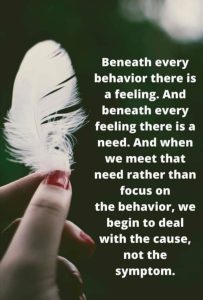 We must see ourselves as being worthy of good things in order for us to attract good things. Do some deep soul-searching for those good things to appear in your life, and your loved ones’ lives by extension. For more information, you are welcome to see my professional Facebook page: https://www.facebook.com/DrToula
We must see ourselves as being worthy of good things in order for us to attract good things. Do some deep soul-searching for those good things to appear in your life, and your loved ones’ lives by extension. For more information, you are welcome to see my professional Facebook page: https://www.facebook.com/DrToula
May you and yours enjoy life’s mythic moments this season and beyond.
Best wishes,
Dr Toula
When People Act Unethically
Hello and welcome to this month’s Mythic Moments newsletter. What do you do when people close to you betray your trust? Do you get angry, determine to get even, retreat, or distract yourself from the conflict?
Recently, I became aware that someone I knew and trusted was attempting to copy my Story Image Therapy (SIT®) method and ideas. Thankfully, I trademarked the therapy in 2015 and can prove it is mine. I did, after all, complete a doctorate on the subject. But that’s not the point. The point is that at the thought of someone trying take credit for my work, I felt incensed.
I then started thinking how Jung and the Stoics would deal with it. Carl Jung would say the potential for betrayal is in everyone’s shadow. This means we all have the capacity to choose to betray others. The operative word is choose. Jung felt that we don’t really solve a problem. Rather, we go to the figurative mountain top, and learn to “see it differently.” The Stoics say the same.
I will use the story of the virtuous Roman emperor, Marcus Aurelius, as an example.
Late in his reign, fighting against invading Germanic tribes far from Rome, Aurelius was sick and dying. Upon hearing the news of his decline and presumed death, Marcus’ friend and most trusted general, Avidius Cassius, declared himself Caesar, assuming Marcus’ throne. Did Marcus feel incensed when he found out that this man, his friend, was trying to take his job and life? Most likely. As luck would have it, Marcus didn’t die. Upon his recovery, what did Marcus do? He kept the news quiet and waited, hoping Cassius would come to his senses and renounce the throne. He didn’t.
Aurelius then called a council of soldiers, announcing that they would march against Cassius and obtain “the great prize of war and victory.” For Marcus, this did not mean Cassius’ death. Instead, he decided to “forgive a man who has wronged one, to remain a friend to one who has transgressed friendship”. He would, therefore, continue to be faithful “to one who has broken faith.”
When we’ve been wronged, it is easy to get angry. We can feel justified in judging and acting harshly… and we have every right to do so. But just because someone else has acted without integrity, doesn’t mean we should do the same. Life is really about choice and consequence. Marcus told his men that if there was one positive thing that they could derive from the situation, it was to “settle this affair well and show to all mankind that there is a right way to deal even with civil wars.”
Here is a short video to explain the stoic view of revenge and retaliation.
So, the next time that some betrays you or violates your trust, remind yourself that in the end they are betraying themselves. And according to Jung and the Stoics, that’s the worst kind of hell.
Choose what type of individual you wish to be. Choose wisely and may every mythic moment in your life be a positive one.
Dr Toula Gordillo
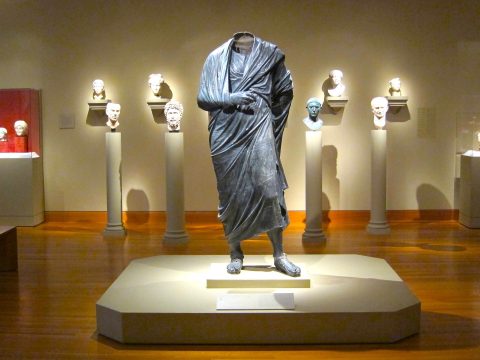
10 Tips for Anxiety
Hello and welcome to this month’s Mythic Moments newsletter.
Most of the clients I see experience anxiety in some way. Some only for a short time
and some for weeks, months and often for years. So, how do we overcome it?
There are many people who claim to have the answers, but do their methods actually work? Maybe.
If you want to know if something is likely to work, then how about learning methods that people have been using for two thousand years?
Surely, if something has been repeated for generation after generation, it is because it has some merit or worth.
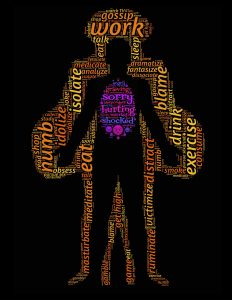
The ancient Greek and Roman Stoic philosophers spent their whole lives studying life. Here are ten tips they said could help with anxiety.
1. Focus on the little things – take one step/day/action/insight at a time
2. Practice gratitude – make the most out a situation and be grateful for the learning
3. Have no opinion – remind yourself that you don’t have to have an opinion about things
4. Stop caring what others think – care only about what you do / think / say / feel
5. Process your emotions – don’t ignore or squash them, but face and work through them
6. Don’t suffer imaginary troubles – recognise imagination is not reality and stay in the now
7. Choose not to be harmed – decide you will not to be harmed by others’ actions, words etc
8. Go for a walk – leave your phone and thoughts of work at home and walk daily
9. Keep a journal – get in the habit of journaling every day
10. Grab the right handle – one bears weight, making you stronger and one disempowers you
For more information on how to achieve these, Ryan Holiday (a renowned Stoic author) has some great ideas.
Please see his YouTube video – How the Stoics Dealt with Anxiety:
Gaining control of our anxious thoughts is vital for a good quality of life. So, do yourself a favour.
Take a few minutes to watch Ryan’s video. You will be glad you did.
That’s it from me this month and enjoy the mythic moments in your life.
Cheers,
Toula
Who Am I? and What Am I?
Hello and welcome to this month’s blog. These blogs offer strategies and tools that you can use between counselling sessions, after counselling (like doing maintenance on a car), or simply to help you stay up to date with the latest developments in Story Image Therapy (SIT)®.
What does it mean to live our lives as Jungian inquiry? It means that every day we need to ask ourselves questions in consultation with ourselves, and the wisdom of our ancestors. That is, spending time becoming more conscious of what’s in our unconscious.
To help people to go deeper during SIT, I often refer to something my father taught me. He said that people need to know NOT JUST WHO THEY ARE, BUT ALSO WHAT THEY ARE.

The “Who Am I?” questions are fairly easy to answer. They are things we consciously know about ourselves—like our age, qualifications, or what we do for a living.

The “What Am I?” questions require deeper thinking. To answer these, we generally need time to “sit” and reflect (that is why I call my therapy “sit” for short… as in to sit and pause for reflection). For example, you might:
- Write a story about your life in the third person, asking yourself the Who Am I? and What Am I? questions.
- You might imagine yourself as an observer—like watching a movie about yourself as the main character. You then ask the character the following Who Am I? and What am I? questions.
- You might draw a picture of yourself, then write the story of what you observed based on:
| Who Am I? (Ego) | What Am I? (Personal Unconscious) |
| My name is…? | What do I stand for, represent or believe in? |
| I live in…? | What do I appreciate the most about my life? |
| I earn an income by…? | What is my passion and purpose? |
| My relationship status is…? | What am I willing to give to get my needs met? |
| In my spare time, I like to…? | What am I willing to take in order to help others? |
| The colour I love the most is…? | What did my ancestors do when they had difficulty in life? |
| My favourite food is…? | What do I value as important in life? |
| The music that makes me happy is…? | What situations, people, circumstances or events can I learn from in the past, to help me in the present? |
| When I feel stressed, I usually…? | What if I told myself a new story? What would it be? |
| My hobbies are….? | What do I see when I look in the mirror? Is this a reflection of my ancestors and in what ways? |
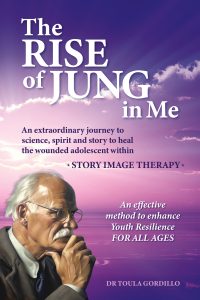
I have written more about this method in my second book entitled The Rise of Jung in Me. The focus is on adolescent healing through Story Image Therapy (SIT®) FOR ALL AGES. That is, how you can help young people to become more resilient, or how we as adults can heal our adolescent wounds to become more resilient in our later years.
In the meantime, enjoy your everyday Mythic Moments. Like the ancient Greek and Roman Stoic philosophers would say, live each day as if it was your last. Your life will be so much the richer for it.
Cheers, Dr Toula
REACHING SYLVAHEIM
Hello and welcome to this month’s newsletter on peace, prosperity and reaching Sylvaheim.
It has been an exciting month! Not only have people purchased copies of Shadows of Sylvaheim for the young people that they live or work with, but they’re beginning to see its value as a teaching and counselling tool for all ages. If you still haven’t bought a copy, see www.featherknightbooks.com or Amazon: https://www.amazon.com.au/Shadows-Sylvaheim-Toula-Gordillo/dp/0648705447.
Sylvaheim (pronounced silver-heim) is the name I give to the place of inner knowing. According to Carl Jung, we reach this inner place when we become more conscious of what’s in our unconscious. How can we achieve this? There are a variety of ways we can reach Sylvaheim. For me, it begins with personal reflection.
For example, I recently celebrated a milestone birthday. A supportive family member had a beautiful cake made up as my book and had to travel a long way to pick it up. As I reflected upon the magnificent cake, and the actions of the person who travelled far to get it, I realised several things:
- I am loved. What a precious thing it is to have people who know us so well, yet still love us.
- I am fortunate. Surrounded by family and friends on my birthday weekend, I realised how fortunate it is to have these special people in our lives — people who take time out of their busy life to support us during a special time in ours.
- I can still be surprised. I had never seen a cake like this before. I was delighted to find that you could get a printer that spits out edible ink in a pattern just like a normal printer. It is nice to know that at any age, we can still get surprised!
Take time to reflect upon and enjoy the mythic moments in your life. And may you reach your version of Sylvaheim… whatever that is for you.
Cheers, Toula
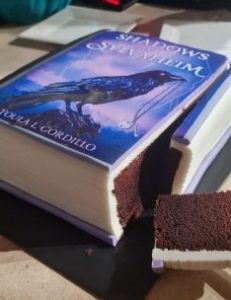
FINDING HAPPINESS
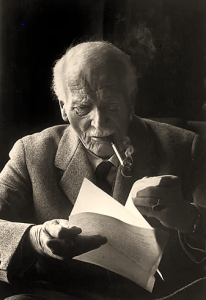
Carl Jung had a difficult life. His mother had a breakdown when he was three, his father lost his faith as a minister and became an irritable hypochondriac, and Jung was badly bullied at school. He was introverted, aloof and had no friends. As an adult, Jung broke with Freud and suffered a breakdown that lasted five years. During this time, he almost lost his grip on reality completely.
Emerging from these difficulties, Jung went on to become one of history’s most influential scholars in the fields of psychology, psychiatry, anthropology, art, literature and religious studies. How did he do it?
Here are some lessons Jung leaned in his journey to wholeness—what he calls “Individuation”. These lessons can help you to find inner happiness and realise your true potential. They also form the basis of Story Image Therapy (SIT)®:
- “Don’t Let Others Define You.” Recognise that you are your own therapist. Use symbolic stories and images to ‘tap into’ your unconscious and find the answers within.
- “Understand Your Passions.” Question yourself. What are you passionate about and why? Do that thing over and over in your individuation journey.
- “Focus on Who You Want to Be.” Jung reminds us that we are not what happens to us, but rather, who we choose to become.
- “Give up Your Addictions.” Jung said any addiction can be harmful. Try to reduce/remove addictive behaviour from your life as much as possible.
- “Be Honest About Your Capabilities.” Embrace the positives of who you are, rather than focusing on who you are not.
- “Make Strengths from Your Weaknesses.” When you are honest about your inadequacies, you can draw upon internal strength to overcome your difficulties.
- “Find a Connection to the Infinite.” See yourself as part of something greater to help you gain perspective and insight. This can mean seeing yourself as part of the natural world, the cosmos, history, a religion, or something else limitless.
- “Make Time for Deep Reflections.” Meditate through regular reflective practice. Draw a picture, sit on the beach, listen to quiet music. Take regular time-out to connect to Self, Spirit and Nature.
Here is a short video (approximately 20 mins) that offers a good introduction to Jung’s philosophy if you are interested in learning more.
Philosophies for Life
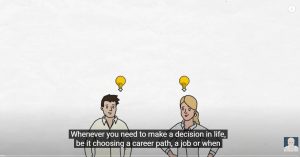
Remember to savour the mythic moments in your life.
Cheers, Toula
SOLITUDE

When was the last time you sat alone outside your home, looked up at the stars, and contemplated your place in the universe? Or sat beside a river or stream, reading or observing the ripple of the waves or the leaves swaying in the breeze?
If you have ever sat to watch the mesmerizing movement of fish swimming in a tank, or sat in front of a fire, staring into its flickering flames, then you likely will know the enormous benefit of taking the time to sit, ponder and reflect on life. To do this effectively, must do it alone and often.
I have deliberately called my Story Image Therapy – SIT® (as in to ‘sit’ and read a story or ‘sit’ and ponder an image). This is because taking time out to sit and reflect is something that we are not doing enough in our modern world. We are all too busy rushing around, overthinking and stressing over the smallest things, that we forget that we are part of something greater than ourselves and our immediate problem or problems.
When we connect to nature, just as our ancestors have always done, we are reminded of our own true nature and the world doesn’t seem so bad.
Take the time to ‘sit’ in solitude, like Jung, as often as possible. It will help you to restore your physical, mental, emotional, and spiritual health.
May all your mythic moments be magical!
Best wishes, Toula
For more information, please see Toula’s website: www.drtoulagordillo.com
To purchase a copy of Toula’s latest book, a mythic heroic fantasy fiction for all ages entitled Shadows of Sylvaheim, please go to Amazon: https://www.amazon.com.au/Shadows-Sylvaheim-Toula-Gordillo/dp/0648705447
Or e-book version: https://www.amazon.com.au/Shadows-Sylvaheim-Toula-Gordillo-ebook/dp/B09NV9ZFJQ
Or audiobook version: https://www.amazon.com.au/Audible-Shadows-of-Sylvaheim/dp/B0CG2KKB51
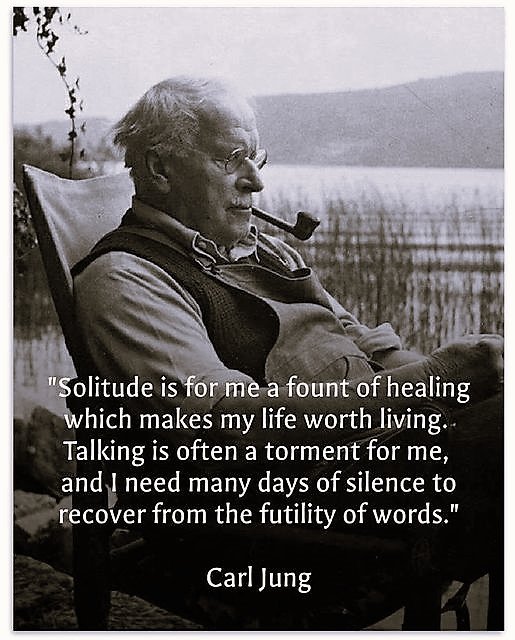
BOOK SIGNING
We had a successful book signing at Caloundra Book Shop on Sunday. Thank you to all who stopped for a chat about our new book ‘Shadows of Sylvaheim’ . The Caloundra Book Shop has copies for sales in store.
